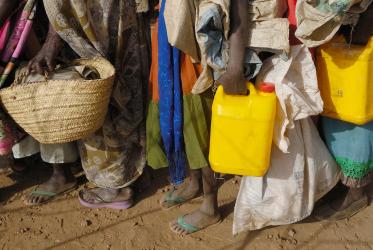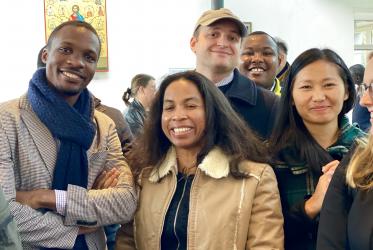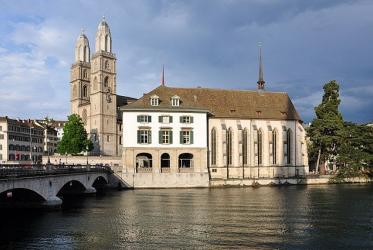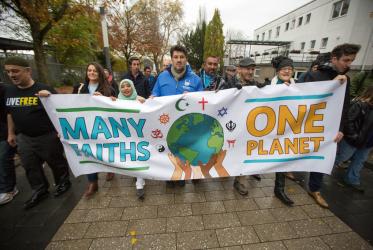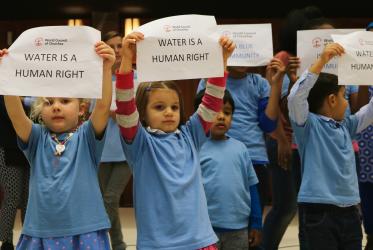Displaying 1 - 17 of 17
Ukraine: Responding to humanitarian need
08 September 2022
Ecumenical young trailblazers
15 August 2019
COP 23 “debriefing” brings faith and ethical perspectives
23 January 2018
In Escalade race, “Pilgrims” find meaning running
04 December 2017
Ecumenical Patriarch visits WCC
24 April 2017
“What can we contribute as a worldwide fellowship?”
06 March 2017
Land rights focus of panel discussion
17 November 2015
Water network develops a theological framework for water justice
12 December 2014
